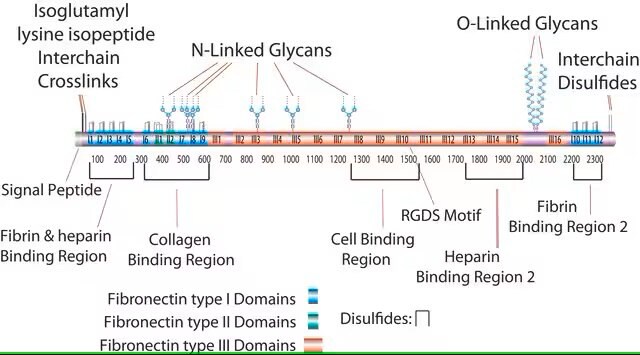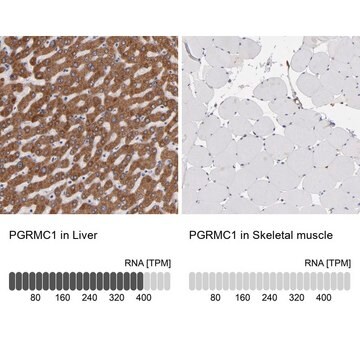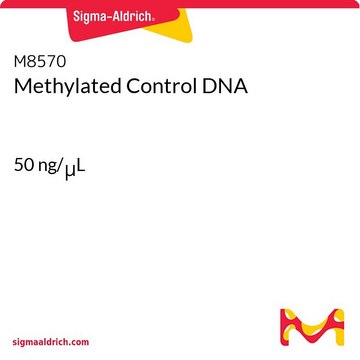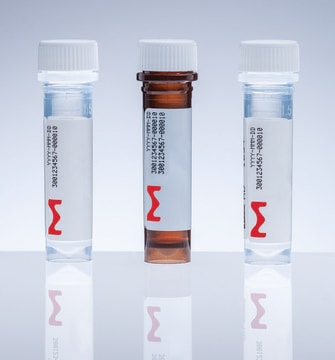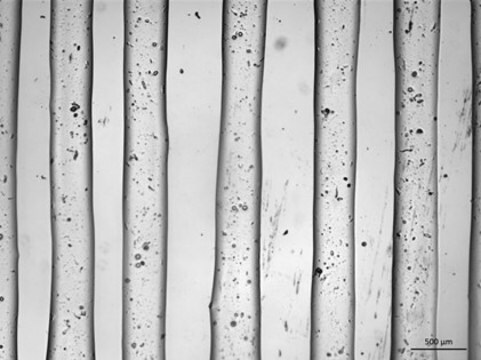935786
Shear-thinning gelatin-based photocrosslinkable bioink

suitable for extrusion-based 3D bioprinting
Sinónimos:
EASYGEL INX
Iniciar sesiónpara Ver la Fijación de precios por contrato y de la organización
About This Item
UNSPSC Code:
12352201
Productos recomendados
Quality Level
form
(transparent gel)
viscosity
0.1-1 Pa.s (high shear)
200-2500 Pa.s low (shear)
gel strength
(Storage modulus after UV crosslinking (kPa) 2-6)
General description
The shear-thinning gelatin-based bioink is a extracellular matrix (ECM)- mimicking ink that provides all the benefits of gelatin with the addition of shear thinning behaviour, thereby allowing easy printing at 37°C.
Based on gelatin derived from natural collagen, this bioink has been modified with photocrosslinkable functional groups which enables unpreedneted printing efficiency of a scaffold that resembes the natural ECM and has exptionally high cell viabilities. The shear-thinning gelatin-based bioink combines all the benefits of conventional gelatin or GelMA with the improved printability thanks to its shear thinning behavior. It can be printed at 37°C in the presence or absence of cells, and overcomes the narrow processing range limitations associated with printing conventional GelMA based bioinks. After printing, the material can be photocrosslinked, resunting in a physiologically stable hydrogel.
Processing:
At high shear rates, this bioink exhibits a low viscotiy which allows easy injection from the printing nozzle, At low shear rates, it has a high viscosity, which is required for shape retention after deposition. This is favorable for extrusion-based 3D bioprinters as the ink should easily be injected through the printing nozzle and the post-injetion flow should be minimized to prevent structural deformation. These properties are very rarely seen in conventional gelatin-based ink, giving this bioink an advantage over traditional bioinks.
Based on gelatin derived from natural collagen, this bioink has been modified with photocrosslinkable functional groups which enables unpreedneted printing efficiency of a scaffold that resembes the natural ECM and has exptionally high cell viabilities. The shear-thinning gelatin-based bioink combines all the benefits of conventional gelatin or GelMA with the improved printability thanks to its shear thinning behavior. It can be printed at 37°C in the presence or absence of cells, and overcomes the narrow processing range limitations associated with printing conventional GelMA based bioinks. After printing, the material can be photocrosslinked, resunting in a physiologically stable hydrogel.
Processing:
At high shear rates, this bioink exhibits a low viscotiy which allows easy injection from the printing nozzle, At low shear rates, it has a high viscosity, which is required for shape retention after deposition. This is favorable for extrusion-based 3D bioprinters as the ink should easily be injected through the printing nozzle and the post-injetion flow should be minimized to prevent structural deformation. These properties are very rarely seen in conventional gelatin-based ink, giving this bioink an advantage over traditional bioinks.
Application
Applications: :
3D bioprinting
Tissue engineering
In vitro modeling
3D bioprinting
Tissue engineering
In vitro modeling
Features and Benefits
Features and Benefits:
- Easy printing - Shear thinning behavior enables easy deposition at 37°C
- Biodegradability - Enables cellular remodeling of the printed matrix
- Easy handling - Delivered in a ready-to-use cartridge - UV curable
- Efficient UV-based crosslinking
- Reproducibility - Strict quality control
Cell interactive - Material is biocompatible mimics natural ECM envrionment
- Easy printing - Shear thinning behavior enables easy deposition at 37°C
- Biodegradability - Enables cellular remodeling of the printed matrix
- Easy handling - Delivered in a ready-to-use cartridge - UV curable
- Efficient UV-based crosslinking
- Reproducibility - Strict quality control
Cell interactive - Material is biocompatible mimics natural ECM envrionment
Storage Class
10 - Combustible liquids
wgk_germany
WGK 3
flash_point_f
Not applicable
flash_point_c
Not applicable
Elija entre una de las versiones más recientes:
Certificados de análisis (COA)
Lot/Batch Number
Lo sentimos, en este momento no disponemos de COAs para este producto en línea.
Si necesita más asistencia, póngase en contacto con Atención al cliente
¿Ya tiene este producto?
Encuentre la documentación para los productos que ha comprado recientemente en la Biblioteca de documentos.
Nuestro equipo de científicos tiene experiencia en todas las áreas de investigación: Ciencias de la vida, Ciencia de los materiales, Síntesis química, Cromatografía, Analítica y muchas otras.
Póngase en contacto con el Servicio técnico

